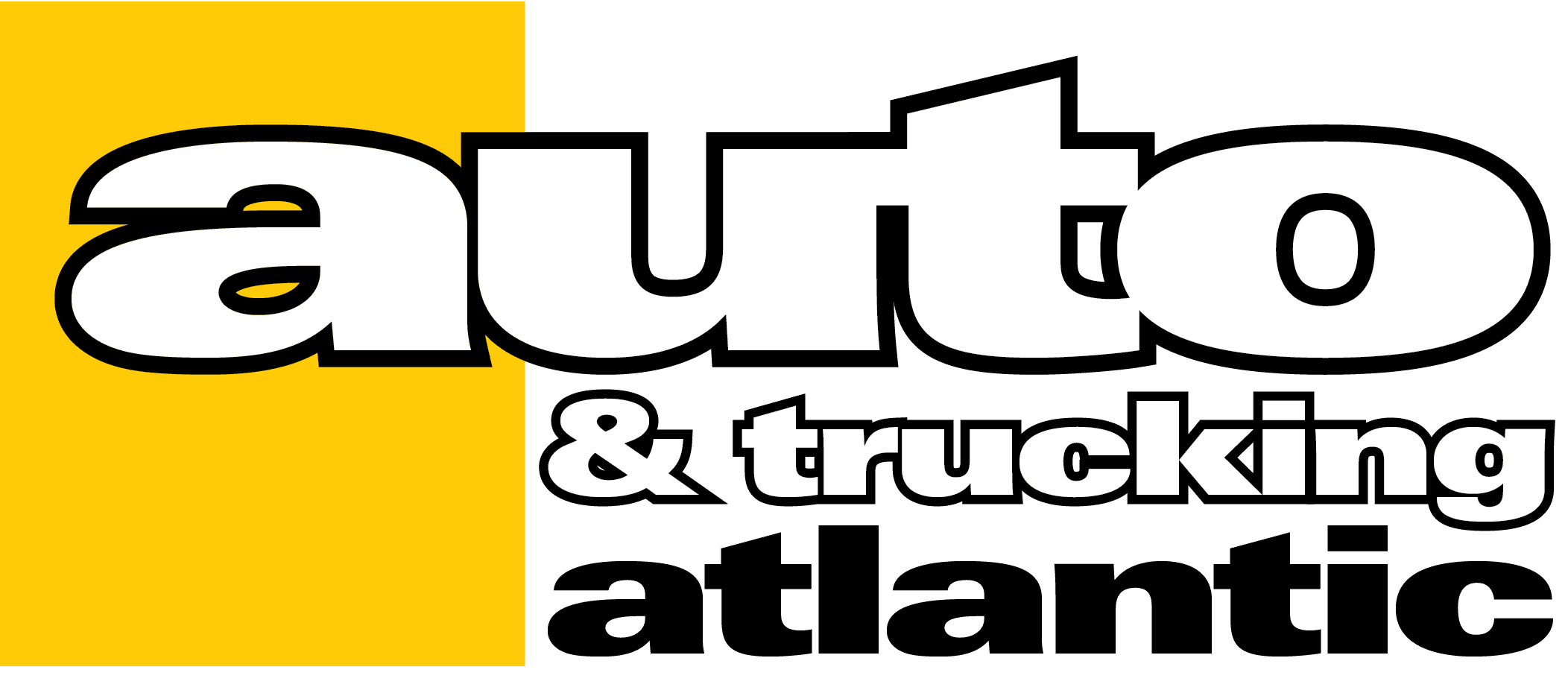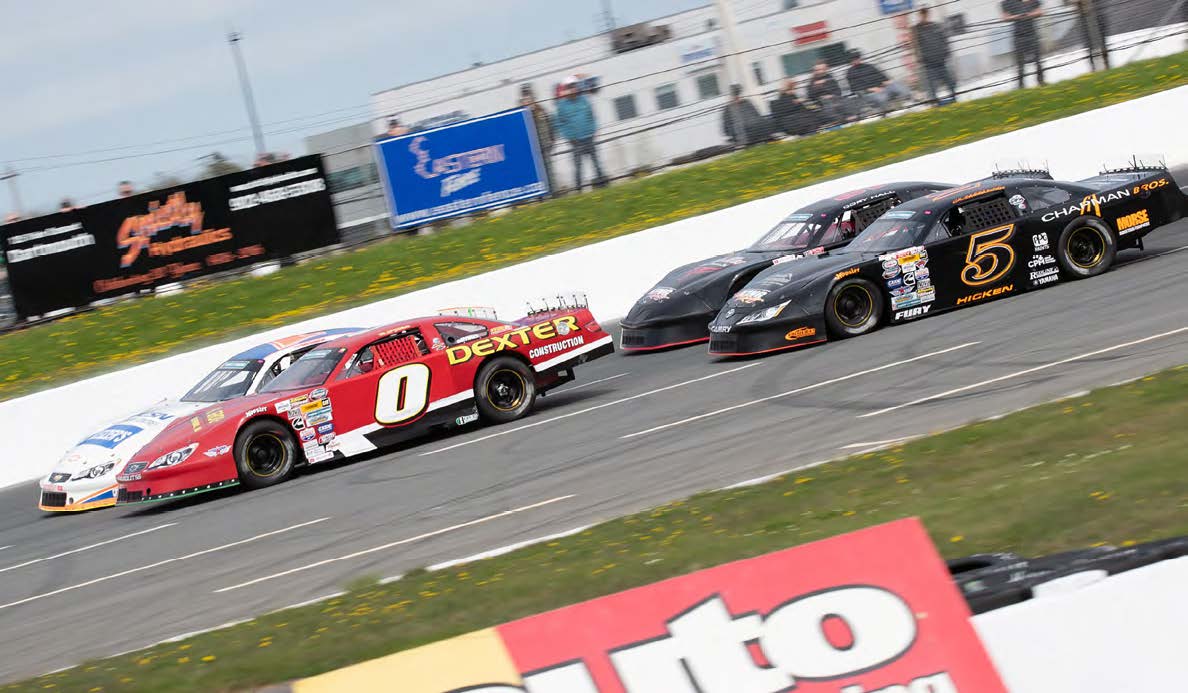By Tim Terry
With the curtain set to fall on 2020 and the 2021 calendar year just waiting off stage for its debut, it is time to reflect on a year that was.
Like any industry, 2020 was a year that showed how strong business really is. The same can be said in the auto racing industry and in Atlantic Canada, it was four different provincial tales that told the story. Rules and regulations concerning large gatherings and sporting events under COVID-19 health guidelines separated Nova Scotia, New Brunswick, Prince Edward Island and Newfoundland while the four provinces were linked under a common Atlantic Bubble.
If there was a clear winner, and we are talking about the sporting and entertainment business here, there are winners and losers in both, it was the province of New Brunswick. In New Brunswick, the four paved ovals had a chance to operate under public health guidelines much looser than their neighbors. This resulted in car counts not seen at some events in over a decade and sell outs that had two tracks adding grandstands and opening seating areas to accommodate more fans.
Two race tracks in that province, Speedway Miramichi and Petty International Raceway, planned to open at the end of June for racers. Under the restrictions set forth when these events were organized, fans would not be allowed as no gatherings larger than 50 were permitted at an outdoor venue. That changed the day before Speedway Miramichi’s first event on June 20th and while it did not allow officials much time to turn around, they opened their gates to fans. Petty Raceway would do the same the next week.
The big loser in these two events were racers and fans outside of the province, who were not permitted to cross into New Brunswick without having to self-isolate for 14 days. Of course, this changed when the Atlantic Bubble was formed on Friday, July 3. The next day, Petty International Raceway hosted the first Pro Stock event of the season, which saw a healthy crowd of fans who had been cooped up since March to watch a full field of Late Models battle for the first major checkered flag of the year. The next week, Speedway 660 re-opened with their Riverview Ford Lincoln Season Opener.
This “perfect storm” led to some big back gate numbers. Petty International Raceway saw one of their shows reach 112 race cars total in August while Speedway Miramichi saw 71 Demolition division cars enter their pit area in September. Petty Raceway added a Turn Four grandstand for their Mike Stevens Memorial race while Speedway Miramichi turned away hundreds of fans for their first July event due to protocols around COVID-19.
The racing season was in full swing in New Brunswick, while government officials still had the red flag out in the three neighbouring Atlantic provinces.
Then, Lake Doucette Motor Speedway received consultation to operate their facility in two 250-person bubbles, one for spectators and one for participants. In mid-July, they became the first track to re-open. The next weekend, Sydney Speedway opened to competitors only after consultation with government officials but offered a pay-per-view video broadcast of the event to those who could not be at the venue due to public health guidelines.
A similar two-bubble system was put in place at Scotia Speedworld before they and Riverside International Speedway received approval for multiple bubbles of spectators to put up to 1,250 fans in their seats. A system like that was soon approved by government officials in Newfoundland to allow several pods of fans to enjoy races at Eastbound Park and Thunder Valley Speedway. Thunder Valley had been operating, starting with no fans, since late July.

Oyster Bed Speedway stayed closed due to tight restrictions and Valley Raceway officially abandoned their season in August.
The Atlantic Modified Tour, a New Brunswick based Series, was able to compete in seven races from August to October. With Bryn Enterprises overseeing promotions and marketing, the Tour saw new marketing partners enter the fold of touring series competition in the midst of a pandemic due in part to the work of Brenda and Glyn Nott. The Heart of a Champion Hot Rod Classics saw three races in what was to be their inaugural season. The Parts for Trucks Pro Stock Tour schedule was hacked from a dozen races to two in their 20th year, both of which happened in the province of Nova Scotia.
The Maritime League of Legends Tour and the Passione Flooring and Interiors East Coast Mini Stock Tour both cancelled their seasons in the Spring due to the pandemic and the toll it had taken on both marketing partners, host tracks and their teams.
The tracks that opened late eventually saw their regular customers at both gates pass through their turnstiles. With the unpredictability of the pandemic early in the year though, several teams scaled back their schedules or simply did not race in 2020. Several teams took advantage of the New Brunswick government’s view of the pandemic and the Atlantic Bubble and made the trip, some multiple times, across the border to get some racing in.
In short, New Brunswick’s gain at their race tracks came in part, some small and some large, at the expense of the restrictions held against tracks and sanctioning bodies in Prince Edward Island and Nova Scotia.
Think of it this way. When a race team travels, they are supporting the economy in the surrounding area of the track. If a team hauls several hours to compete, chances are they may stay in the area, giving hotels and AirBNB type establishments a boost in a time when their income had been severely slashed due to a low tourism season. With New Brunswick open for business for a month and a half before most even got approval to do so in Nova Scotia, teams and fans alike paid visits to businesses in Moncton, Fredericton and Miramichi as they enjoyed the sport they love.
While each track, like most businesses in the province of New Brunswick, received visits from Public Health, each event continued on. Some of those events saw thousands of race fans on site and could have been considered “super spreader” type events with the number of individuals on the property.
Here’s the kicker though – not one case of COVID-19 surfaced from these events. Not a single one. Chalk it up to what you will but the virus did not spread at a stock car race in Atlantic Canada in 2020 and they were the biggest gatherings of people recorded in the Summer of ’20 in Nova Scotia and New Brunswick.
The pandemic helped businesses like Speedway Miramichi stay open and the season helped pay the mortgage in a make or break year prior to the pandemic set in. Petty International Raceway and Speedway 660 formed a partnership that saw the two tracks race on opposite weekends. Fans and teams rewarded them with great crowds of both spectators and cars at each track. In addition, Speedway 660 opened “Rucker’s Reels” in their front parking lot. Rucker’s Reels is a drive-in movie theatre showing family friendly motion pictures when the track sat silent.
If you had a race car in the Maritimes, you got to travel to a track to get some racing in. Whether it was across the Confederation Bridge to the mainland or a local track in Nova Scotia or New Brunswick, you had options. That is more than what some had across the country. Sponsorship was down for several teams and, as mentioned before, some teams decided to keep their proverbial horses in the stable for another time.
So, even if it was a different looking landscape in 2020, racing continued on. In some places, it survived. In New Brunswick, it could be argued that the following for motorsports grew exponentially. But now, with the focus shifting to 2021, what is next? The short answer, who knows?!
Since the 2020 season ended, a second wave of COVID-19 has entered Atlantic Canada, virtually putting a pin in the Atlantic Bubble. At press time, every province except Nova Scotia requires you to self isolate if you enter their borders from another Atlantic Province. Those rules put the brakes on the Speedway Miramichi Awards Banquet in November and sent the Maritime Short Track Summit organization meeting into a virtual mode.
Within the province, while New Brunswick is closed to visitors, their rules haven’t changed much. Speedway Miramichi is planning a Winter Demolition event for mid-January. Whether the borders will be open to allow Nova Scotia and Prince Edward Island competitors and fans remains to be seen but, should the Miramichi region be in the “Yellow” recovery phase, they should be able to operate their outdoor event much like they did back in the Summer.
Should New Brunswick tracks have the same restrictions, or looser, in 2021, you’d have to believe they will continue to see the sport flourish. If neighbouring provinces loosen their guidelines and open to more races and fans, you’ll likely see the car counts dwindle a bit in the less significant races in New Brunswick in 2021. If the tracks continue to work together like they did in 2020, they should do fine.
Several sanctioning bodies, including the Parts for Trucks Pro Stock Tour, Lake Doucette Motor Speedway and Riverside International Speedway have released their dates for 2021. The Parts for Trucks Pro Stock Tour schedule mirrors their 2020 pre-pandemic schedule with events slated for the same weekends in the new year. That, in theory, sets three of Riverside’s races with the fourth sliding into the same weekend as it was scheduled for in 2020.

What will the pandemic look like in Nova Scotia by the late May start for Scotia Speedworld and June for opening day at Lake Doucette and Riverside?
You’d have to think the precedent each venue set in 2020 will give them a great foundation to deal with what COVID has to offer in 2021 but only time will tell. Will the United States/Canada border be open and how will that effect the flow of traffic? Several American teams come to Canada to compete and vice versa. The border has changed plans for many within the sport over the past nine months and that is sure to continue in some way into the new year, beginning with the big season opening events in the south east United States.
Then there are talks of a vaccine. How will that impact our daily lives when it comes to gatherings, let alone what it will do to the sport? When will it be available to everyone? Will it allow Riverside International Speedway to hold an IWK 250 like event in 2021? Can we return to having pre-race concerts, bonfires and social gatherings that were shelfed in 2020? Again, only time will tell.
In short, the sport of stock car racing and motorsports is still around to see 2021 with all the venues and series it entered 2020 with in Atlantic Canada. The same can’t be said for several regions across North America within the same industry. As is the case in most years, plans usually begin to flood the community from tracks in the early months of the new year. Expect January and February to be busy as tracks, series and teams begin to form a plan of attack, and likely a Plan B and C, for 2021.
Here’s hoping there are plenty of green flags in our future for the new year and all provinces can return to somewhat normal competition in 2021!

